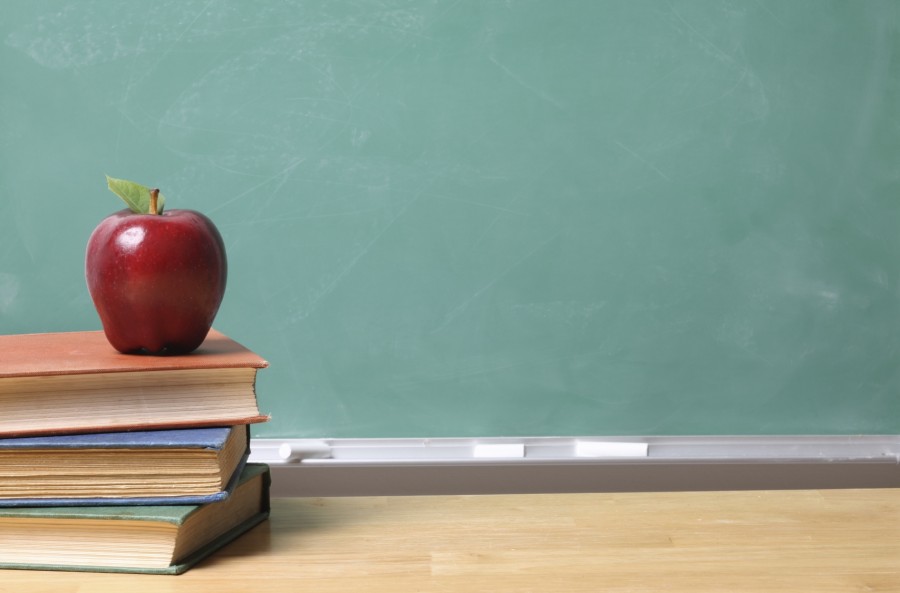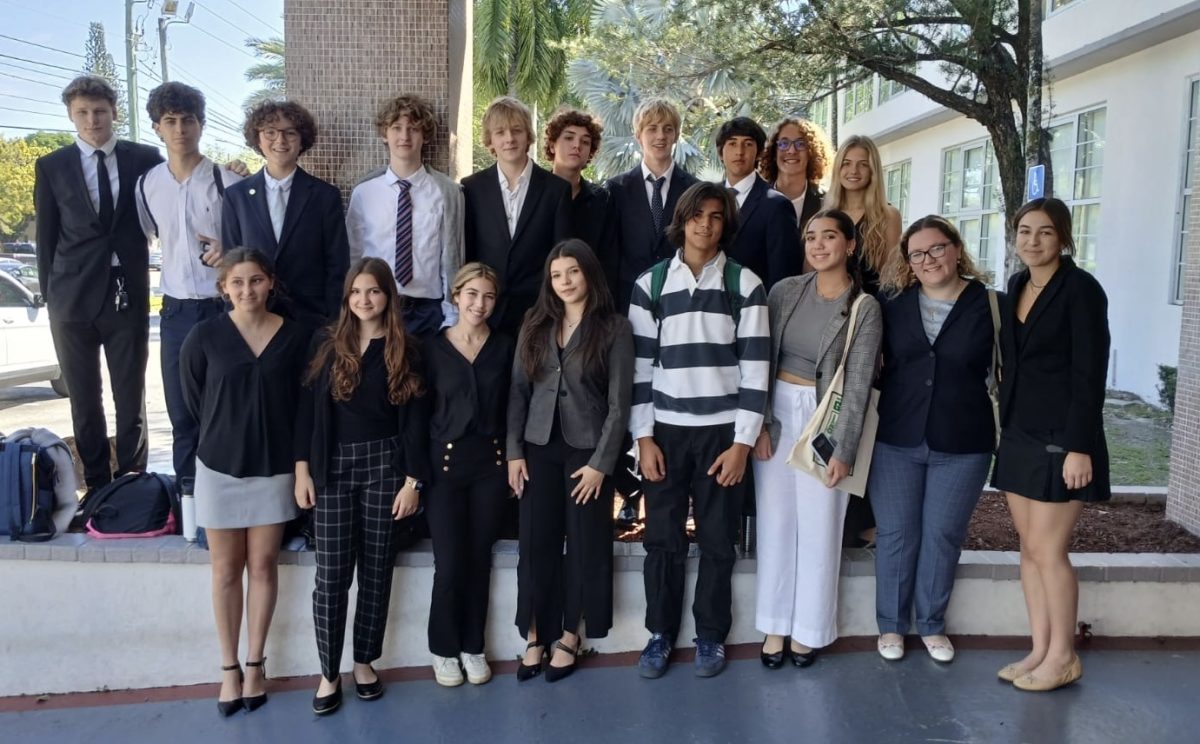Education in America
The American school system cannot compare to schools in many other countries.
Oct 11, 2014
Despite the fact that the United States is one of the richest countries in the world, it’s a well-known fact that education in America lags far behind the rest of the world- especially compared to countries in Europe and parts of Asia. Although the issue has recently begun to garner more attention, there is still debate about the reasons for which such a powerful country has a weaker education system than many other highly-developed countries in the world.
The Organization for Economic Co-operation and Development (OECD) administers a test internationally that measures general achievement levels in critical areas such as reading and math. Among the world’s developed countries, we are listed as 17th in reading and 31st in math according to “Globally Challenged: Are U.S. Students Ready to Compete?” by Harvard’s Program on Education Policy and Governance. Although it is debatable to measure an individual’s, and especially a country’s, intelligence or creativity through means of standardized testing, the results of an inferior education system are noticeable in other aspects, such as the amount of homework they administer. According to a 2003 Brown Center Report, students in the U.S. receive, on average, an hour less of homework daily, and this meager amount is often “busy work,” or work that serves to reduce a student’s enthusiasm for learning.
Although there is not much to be said in the way of positives for American education, it does face unique obstacles. The cultural homogeneity of countries like Japan and Finland allow a single educational program to apply to a broader range of students. In addition, the United States is expansive and has to deal with a large wealth gap. Despite difficulties, improvements are being attempted. The No Child Left Behind Policy, while not successful, is evidence that government and education leaders are at least trying to reform. It doesn’t stop there- states such as Rhode Island are beginning to raise the bar for their teachers, making it more difficult to obtain a teaching position by implementing long interview processes and only accepting those in a smaller percentile range of class rank, according to Providence Journal. The Common Core is another program aimed at education reform.
Amanda Ripley, a Cornell graduate and investigative journalist for Time and other magazines, examines the issue in her book, The Smartest Kids in the World, where she essentially asserts that the United States population does not view intellectualism with as much respect as the populations of European countries. This is evident when one travels abroad; school systems and curricula are structured differently. Sports, for example, play a much smaller role in a student’s academic and extracurricular careers. Instead of a paramount focus on academic work, they organize pick-up games or play with a club that is not affiliated with their school. Teachers have more freedom in Europe to create their own lesson plans, but an attempt to allow that to happen in the U.S. would be disastrous.
The United States’ teacher workforce is too large and too undereducated. In Europe, for example, applying for a public teaching position is a competitive process, where attaining “teacher” status is highly respected. In the United States, however, many teachers take little pride in their work, or are not educated properly in methods of education. This is evident by the recent efforts on the part of the U.S. to raise standards for those employed as teachers. Over the past two years, according to a report from the National Council on Teacher Quality, 33 states have passed meaningful new oversight laws or regulations to elevate teacher education in ways that are much harder for universities to ignore. As a result of relaxed standards for teachers, any attempt at creative curriculum could result in a student’s failure. It would be nearly impossible to determine whether or not a new curriculum format designed by a teacher would be successful without the use of a “guinea-pig” class, which may suffer if the curriculum is not thorough. Despite this fact, there are teachers intelligent enough to at least tweak lesson plans, but this is often discouraged by an administration worried about possible failure. If rules were put in place to allow certain teachers to deviate based on intelligence, we would again run into the problem of determining how best to measure students’ intelligence. The guinea-pig method is the only way to go, and it is not sufficient, considering that it may fail to achieve its purpose of creating superior education.
The indifference toward intellectualism causes problems with parents, as well. The viewpoint on a parent’s role in a child’s education has changed throughout the years. Several decades ago, children were more self-sufficient than they are today. In previous generations, students were made increasingly responsible for their own actions. Bad grades in class meant criticism and possibly punishment from parents. Now, the ineffective strategies used to deal with an inadequate teacher involve a phone call or email from parents to the principal, taking blame off the student for poor performance.
“I have noticed that students do not take responsibility for their education as they have in the past. They expect positive outcomes and an instant gratification without putting in the hard work and dedication it takes to get there,” science teacher Ms. Fraga said.
Although the United States has an education system that is obviously inferior to most other developed countries, it is trying to make a change. Government policies and new laws are trying to fix the problem from its root: improving the quality of education by bringing up standards nationwide, whether these standards are with the teachers inspiring students or with curriculum guidelines that should meet a bare minimum compared to the rest of the world. Although the U.S. is viewed as a worldwide leader, it cannot truly compete on an international level until its future is secured through the education of those who will one day make decisions just as important as the remodeling of our education.











Daniel W. Blackmon • Jan 10, 2015 at 3:19 pm
Nicholas, It is a commentary on my age (a technologically starved generation) that I rarely find myself on CavsConnect, where so many of my students contribute articles . . . . I can see at least one more article that I wish I had read before I wrote her a recommendation . . . .
I liked your article on education. The US, unfortunately, has long had a low opinion of intellectualism, and with teacher pay devolved on the state and then local school boards, raising pay and improving conditions will always be tenuous, since both depend on the willingness of voters to pay taxes.
Another almost “hidden” factor is that, historically, teachers were women, and unmarried women at that, and therefore respect as well as pay remained low.
Under the prevailing conditions in Florida, considering issues of pay, teacher evaluation, benefits and job security, it will become extraordinarily difficult to find and retain talented, dedicated teachers. Districts will end up hiring only those who can’t get a job somewhere else.
I cannot properly address parent interest or student motivation; my parents and students are definitely NOT the norm. But certainly, when I began teaching, a student’s poor performance or bad behavior at school would result in sharp parental discipline: a parent’s reflex was to place responsibility on the student. Today, generally, the teacher is blamed.
However, if these challenges are not met (and obviously, there is no single, simple solution), our economic future grows dim in comparison with regions in the world which value education more.